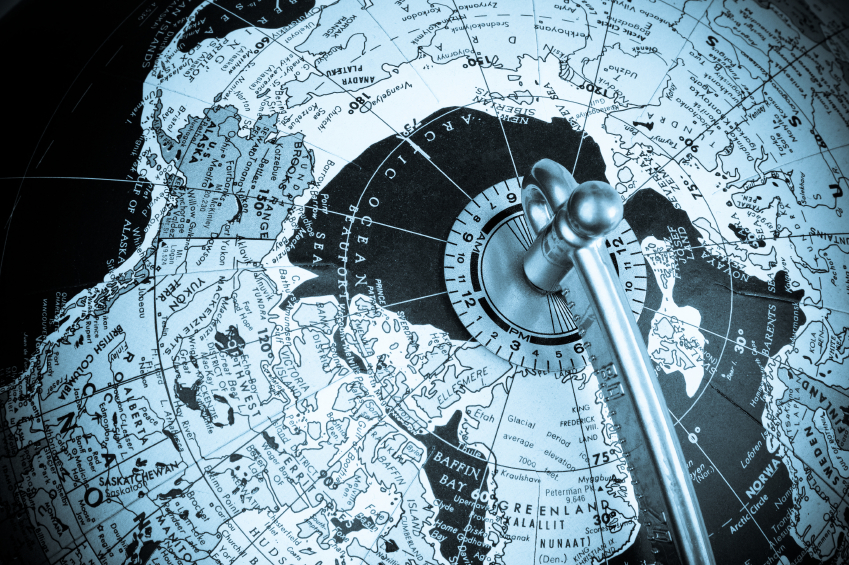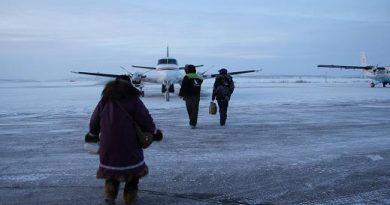Blog: The Arctic Council’s Immunity to Crimean Flu

Since Russian forces entered Crimea earlier this month, a host of commentators have been speculating on when and how that crisis might spill over into the Arctic.
For those who have promoted the Arctic region’s stability and peacefulness, Putin’s actions have given pause. We may all agree that there is no rational reason to use military force in the Arctic, and that there are no ends that could be achieved by doing so. But we are less and less confident that Putin is guided by rationality in his decision-making. Conflict in the Arctic remains improbable, but less impossible.
The Crimean crisis has already affected Arctic relations in subtle ways: as Canada, the United States and Norway have suspended a number of bilateral activities with Russia, joint military exercises and activities have been cancelled, including exercise Northern Eagle (USA, Russia, Norway), Russian participation in both the Norwegian Military Tattoo 2014 and Canada’s Op Nanook; and the next meeting of the eight Northern Chiefs of Defense Staff, which have been taking place since 2012.
Conventional wisdom sees the Arctic as an obvious corollary to the events in the Ukraine, and various politicians have pounced on this. Hillary Clinton for example, speaking in Montreal this month, made what can best be characterized as hawkish remarks on Russia in the Arctic, calling on Canada and the USA to present a united front against growing Russian aggression in the region.
You’d be forgiven if this speculation left you with an impression of inevitable strife in the region. Writing in the Arctic Journal, on March 11, Robert Murray makes this argument, asking “why would Arctic diplomacy be any different” than Russian tactics in Syria, Iran and Ukraine?
But in an environment ripe for escalation, last week saw a major indication that the Arctic, in fact, is different. The Senior Arctic Officials (SAOs) – the diplomats charged with managing the actual work of the Arctic Council in between the biannual Ministerial meetings – met last week in Yellowknife, as they do ever six months or so. Although Crimea was no doubt a topic of private conversation, not only did Russia’s recent incursions not affect the meeting itself; it did not even form an agenda item. The Arctic Council effectively ignored the crisis and continued its important work with pointed disregard for those southerly events. The remarkability of this deserves to be underscored.
Harper’s Gambit
Canada has very little ability to coerce or compel Russia to abide by international norms. Stephen Harper has exercised the few options he does have at his disposal to rebuke Russia on Crimea, including imposing sanctions and travel bans; pushing the G7 into a harder and united line against Russia; and making an early visit to meet with the new Ukrainian leaders in a show of solidarity.
But in the one area where Canada had real leverage, and unilateral ability to exercise it – in the Arctic Council meetings which it currently chairs and subsequently hosts – Harper chose to exercise restraint. This has both surprised and impressed me. I have often lamented that Harper is blind to the nuances of circumpolar relations. But when it really counted, his instincts were right.
A few things seem to be in play here. Beyond Harper, at the political level Leona Aglukkaq probably had some influence on the decision to keep the Arctic Council out of Canada’s Ukrainian response. Transport Minster Lisa Raitt’s offhand (and potentially irresponsible) public remarks that “Russia’s status in the Arctic Council may be under review” infer that some discussion has taken place at a Cabinet level. As a Northerner herself, Aglukkaq would likely be reluctant to see the concrete and incremental progress that takes place in the Arctic Council delayed or suspended and may have pressed this point.
In particular, the Arctic Economic Council, which Aglukkaq has championed, was officially established last week, and Russia has co-chaired the Task Force that articulated its role. Needless to say, there could not be an Arctic Economic Council that didn’t have both Canadian and Russian involvement. More pointedly, Aglukkaq would have had to answer to the three Canadian Permanent Participants that sit on the Arctic Council – Arctic Athabaskan Council, Gwich’in Council International and Inuit Circumpolar Conference – if she allowed politics to derail their work, and that would not have been an easy conversation. Whatever concerns there may have been that Aglukkaq would act as a Harper mouthpiece in circumpolar relations have been proven unfounded; Foreign Minister John Baird seems to have completely left this file to Aglukkaq as well.
The Russian Connection
Second are the dynamics in the Arctic Council themselves. Russia has been an excellent partner and leader in the Council in the past few years, not least because of the competence and ability of Russia SAO and Arctic Ambassador-at-Large Anton Vasiliev. Vasiliev currently co-chairs three of the Arctic Council’s four task forces – a huge administrative burden – and has been an important force behind the Council’s recent legal agreements and institutionalization.
It bears reminding how small and close knit the Arctic Council actually is – as a colleague of mine pointed out, the whole Council can still fit into a bar. Any castigation of Russia would therefore feel both personal and painful – not merely bureaucratic. So within the Arctic Council itself, there is no appetite to sanction Russia or impede its participation. If Canada exercised its discretion as Chair to exclude Russian participation, it would probably be alienating most or all of the other states and Permanent Participants in doing so.
The Arctic Council Makes the Arctic Different
Finally, and in actual fact, the Arctic Council is different from other geopolitical organizations, and it is special. It does important scientific work, has negotiated important agreements, and has spearheaded many important efforts to protect the environment, which is all to say that it is useful for the states and indigenous groups that participate in it. Furthermore, not only is it the only good model of inclusivity and engagement with indigenous peoples in international relations, it is far more successful in that endeavour than any national example I can think of. But perhaps most important from a realpolitik perspective is that Arctic relations are not founded on a zero sum game. Rather, gains for one are generally gains for all, because the Arctic Council addresses the tragedy of the commons, not the security dilemma. Icelandic President Grimsson warned in Bodø last week that “we would not need more than an hour to destroy Arctic cooperation.” Such an act would have real and expensive costs.
An article in this week’s Economist, addressing the German response to the Ukraine crisis, talks about lessons from 1914: how it is crucial not to drive into “dead ends”, but rather to create “exits” in order to keep the crisis from escalating into conflict. There may be some tacticians who are tempted to turn the Arctic into another dead end for Russia, and some observers that would accept that as inevitable. Such an act would be horribly short sighted. For now, gratefully, cooler heads are prevailing.




A rational and considered opinion on the Arctic post Russian aggression in Ukraine. Lets leave the major world conflicts out of the scene/sessions of the Arctic Council (recognize the problem but keep working of resolution of Arctic Issues) and lets recognize that there are six permanent participants whose view, understanding and experience of the Arctic is very different than that of the western geopolitical perspective of space and politics. Let also emphasis that this is a region that needs to be demilitarized, a region that is undergoing massive climate change, where even the considered of developments and changes leaves a huge scare on the society and environment.